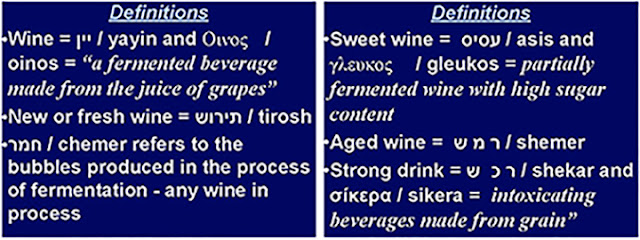CHRISTIANS & ALCOHOL (PART II)
By Akin Ojumu
In both the Old and the New Testaments, there are several words in Hebrew and Greek, respectively, that were translated into the English word, “Wine”. The most common word in the New Testament translated into wine is the Greek word OINOS. It appears 33 times in the Bible (Matthew 9:17, Mark 2:22, Luke 5:37, John 2, Ephesians 5:18, etc.).
Oinos is the general word for wine in the New Testament and it is used very commonly. It simply refers to the juice of grapes. The equivalent Hebrew word for Oinos in the Old Testament is YAYIN. It is used 141 times in the Old Testament. Yayin refers to wine that is usually diluted with water; it literally means mixed wine.
The other word translated wine in the New Testament is the Greek word, GLEUKOS – this is the word from which we get the word glucose. Gleukos means new wine. It is the word that was used in Acts 2:13 to describe the experience of the Apostles on the Day of Pentecost when they were said to be “filled with new wine.” In the Old Testament, the equivalent Hebrew word for Gleukos is TIROSH (e.g., Hosea 4:11: “Promiscuity, wine, and new wine take away one’s understanding.”)
Another word used for wine in the New Testament is the word SIKERA (used once in Luke 1:15). It is a word that refers to unmixed wine or pure undiluted drink or strong drink or intoxicating beverage. Its equivalent in the Old Testament is SHAKAR which means strong drink and also means unmixed wine or straight drink (Leviticus 10:9, Numbers 6:3, etc.).
So, for the word wine, we have 3 different usages in Greek and Hebrew respectively: Oinos (Yayin) – mixed wine, Gleukos (Tirosh) – new wine, and Sikera (Shakar) – unmixed wine or strong drink. These are the various words that you read as wine in the Bible. And in order for you to correctly interpret Scripture you must understand that these are different and distinct words that mean different things. Which is why the basic principles of Biblical exegesis and hermeneutics are essential, and it is why we must first answer the question “What did this Scripture mean to those to whom it was originally written?” before we can correctly answer “What does it mean for us today?”
So back to the question earlier asked: “Is drinking wine today the same as in Bible times? Is the wine today the same as then? The answer of course is “No.” The alcoholic wine people drink in contemporary times is nothing compared to how people in Bible times drank wine. The wine people drink today is straight wine that is unmixed with water. That was not the acceptable way of drinking wine in ancient times. The wine back then was non-alcoholic and non-intoxicating.
The OINOS (YAYIN), i.e., the diluted wine, is made of a thick paste, syrup or jam. The thick paste is produced by heating the diluted wine until it boils, and the water evaporates. Once the water evaporates, it turns into a thick paste which makes it storable since they don’t have refrigeration. This thick paste is non-intoxicating.
Whenever they wanted to drink wine, they would take a portion of the thick syrup, add as much as 20 parts of water to it. This was the most common way of preparing and storing wine. And this diluted wine was the preferred drink in Bible times.
In addition to storing wine as paste, people at Bible times did, occasionally, store wine as liquid as well. This was done using large jars called amphorae. On occasions they needed to drink wine, they would first pour it from the amphorae into large bowls called kraters, where the wine was mixed with water. The ratio of water to wine varied from a ratio of 20 to 1, (i.e., twenty parts water to one part wine) to a ratio of 8 to 1 (eight parts water to one part wine). From these kraters, cups or kylixes were then filled. The kylixes were never filled from the amphorae but from the kraters, ensuring that mixed and intoxicating wine was always served.
When Jesus turned water into wine at the wedding in Cana (John 2), the Greek word used for wine is “OINOS”. There are many who have, however, misinterpreted the event at Cana to argue that if Jesus could turn water into wine what’s wrong in drinking in alcohol. Such an argument is based on faulty Biblical exegesis. Jesus turned water into OINOS (nonalcoholic grape juice). He did not turn water into SIKERA (strong drink or booze).
We’ll continue the discussion next time.



Comments
Post a Comment